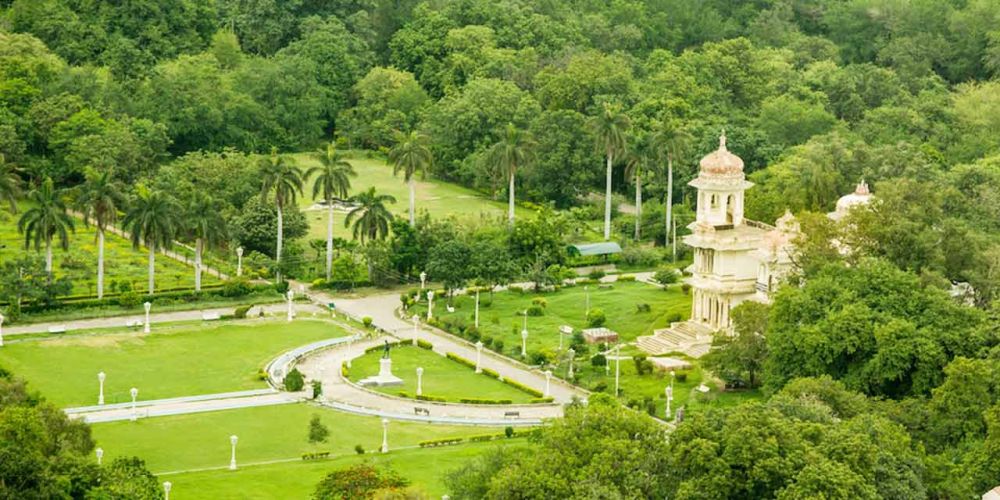

Gulab Bagh, also known as Sajjan Niwas Garden, is the largest garden in Udaipur, Rajasthan, India. Spread over 100 acres, it is renowned for its lush green lawns, marble fountains, and a wide variety of roses, after which it is named ('Gulab' meaning 'rose' in Hindi and Urdu). Established during the reign of Maharana Sajjan Singh in the 1850s, Gulab Bagh is considered one of the most tranquil spots in the city, offering a peaceful retreat from the hustle and bustle of urban life.
The garden also houses the Gulab Bagh Zoo, which was established in 1876. It has the distinction of being one of the oldest zoos in the continent. Over the years, it has been home to a variety of species of animals including tigers, leopards, and birds. The zoo has played a significant role in conservation efforts and serving as an educational resource for the local community.
Tourism in Gulab Bagh and Zoo has evolved considerably since its inception. Initially, it was a recreational spot for the royal family and the elites of Udaipur. With the advent of modern tourism and India's growing international appeal, Gulab Bagh became a must-visit destination for tourists looking to explore the city's natural beauty and cultural heritage.
The Victorian-era library located within the garden grounds, known as the Saraswati Bhawan Library, also attracts history buffs and literary enthusiasts who are eager to explore its vast collection of ancient handwritten manuscripts and books.
Today, Gulab Bagh and Zoo have adapted to the latest trends in the tourism industry. Efforts have been made to enhance visitors' experience with the addition of more amenities, improved infrastructure, and the implementation of eco-friendly practices. People are drawn to the exquisite Toy Train ride that circles around the garden, offering a unique perspective of this historic site.
Additionally, digital advancements have been made, such as the introduction of mobile apps and digital guides, making the visitor experience more interactive and informative. These efforts have ensured that Gulab Bagh continues to attract a diverse group of tourists, eager to experience the fusion of natural beauty and historical significance that this destination offers.
With growing environmental consciousness, emphasis on sustainable tourism has also risen. Measures are being taken to minimize ecological footprint, conserve water, and protect the biodiversity within the zoo. These initiatives reflect a modern approach to tourism, where the emphasis lies not only in providing memorable experiences to tourists but also in preserving the site's natural and historical integrity for future generations.
Gulab Bagh and Zoo's rich history and continual evolution in the tourism industry have made it a timeless attraction in Udaipur. The garden and zoo remain true to their historical roots while embracing modernity, offering visitors from around the world a chance to partake in its serene beauty and rich cultural tapestry.